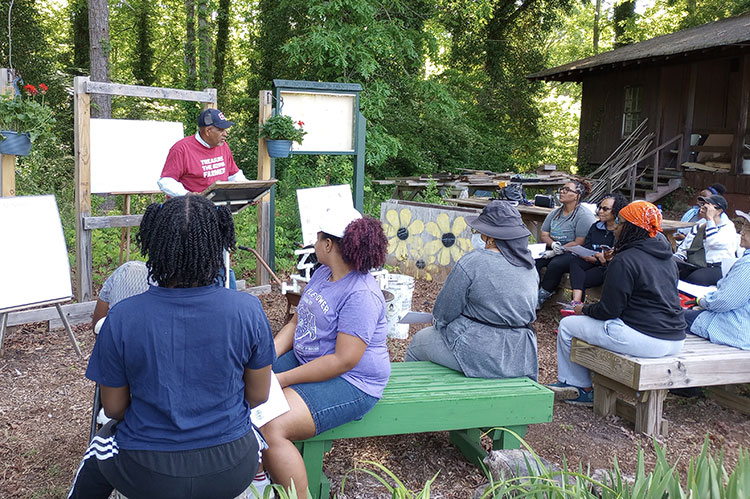By Faith Peppers
University of
Georgia
Choose activities carefully.
"Extracurricular activities (both organized ones and unstructured play times) give children chances to test and practice skills in real, meaningful environments," said Diane Bales, a UGA Cooperative Extension human development specialist.
Bales said practicing what they learn in school can help children strengthen skills, build confidence and interact with others.
Hands-on fun
Extracurricular learning isn't all about reading, writing and arithmetic. Consider the social learning aspects of after-school fun, too."When children play a sport, for example, they get to practice and improve certain physical and motor skills," Bales said. "But they also get a chance to feel good about themselves, contribute to a team effort and negotiate differences with others."
Extracurricular activities are almost always hands-on. "They give children chances to explore and experiment, which helps make and strengthen connections in the child's brain," she said.
Don't pass playtime
Bales recommends parents not forget good old-fashioned playtime."Playtime is an essential part of childhood," she said. "It's not just for entertainment but an important way of exploring the world, learning new skills and practicing and reinforcing existing ones. For children to truly engage in play, they usually need an uninterrupted block of time to use their creativity."
Creativity is easiest in free play, when children can choose their activity and materials, engage all of their senses, and really get into it.
"It's not impossible to be creative in structured activities," she said. "But it's more challenging when you're trying to meet the requirements of the activity or the leader."
The other advantage is that unstructured time gives children some control over part of their lives. "They get to choose what they're doing, how long they'll do it and when they'll switch to a different activity," Bales said.
Very young children (under age 3) have very short attention spans. They may not stay engaged in free play for as long as older children.
"But if the activities and materials are interesting and engage the child, he may stay involved for a long time," she said. "In early childhood programs, I always encourage teachers to schedule at least two blocks of time for free play of at least an hour each. And much more free play time is effective, as long as adults provide plenty of play materials. There's no magic number that's 'enough.'"
Finding balance
Once children start school, it's harder for parents to balance play, planned activities and the pressures of homework."If children don't have enough time to comfortably complete their homework or are staying up later than they should to get homework done, they're probably involved in too many activities," Bales said.
Another warning sign is when children often complain about going to certain activities.
"Children who never have time to invite friends over or play at a friend's house, who never go to the playground or play outside, who never ride bicycles or go for a walk, who never engage in pretend play or work a puzzle or build something or engage in any other form of free play probably have schedules that are too full," she said.






